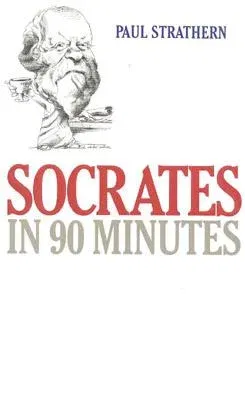Paul Strathern
(Author)Socrates in 90 MinutesPaperback, 1 April 1997

Qty
1
Turbo
Ships in 2 - 3 days
In Stock
Free Delivery
Cash on Delivery
15 Days
Free Returns
Secure Checkout

Part of Series
Philosophers in 90 Minutes
Part of Series
Philosophers in 90 Minutes (Paperback)
Print Length
89 pages
Language
English
Publisher
Ivan R. Dee Publisher
Date Published
1 Apr 1997
ISBN-10
1566631483
ISBN-13
9781566631488
Description
Product Details
Author:
Book Format:
Paperback
Country of Origin:
US
Date Published:
1 April 1997
Dimensions:
20.4 x
12.8 x
0.81 cm
Genre:
Secular
ISBN-10:
1566631483
ISBN-13:
9781566631488
Language:
English
Location:
Chicago, IL
Pages:
89
Publisher:
Weight:
90.72 gm